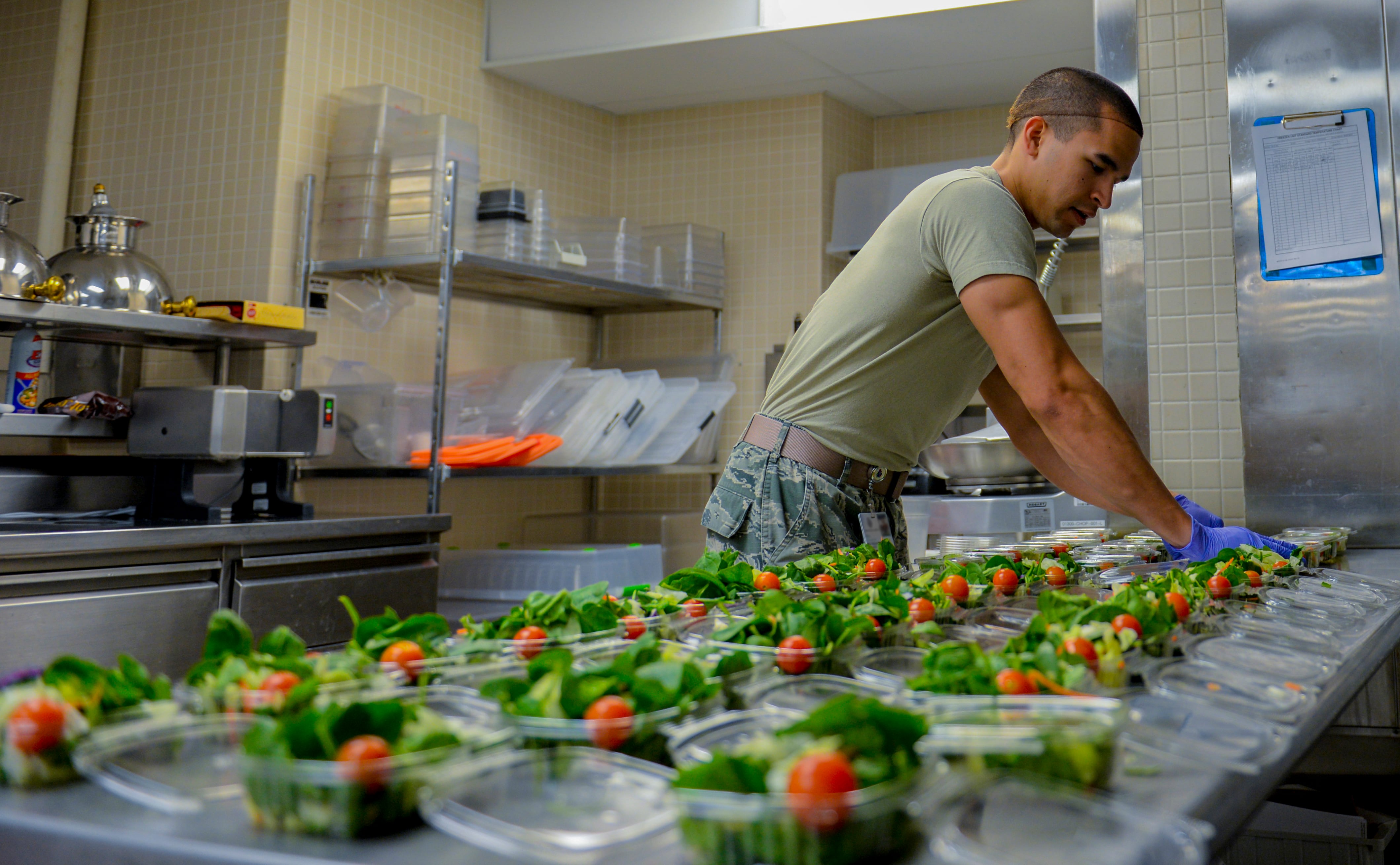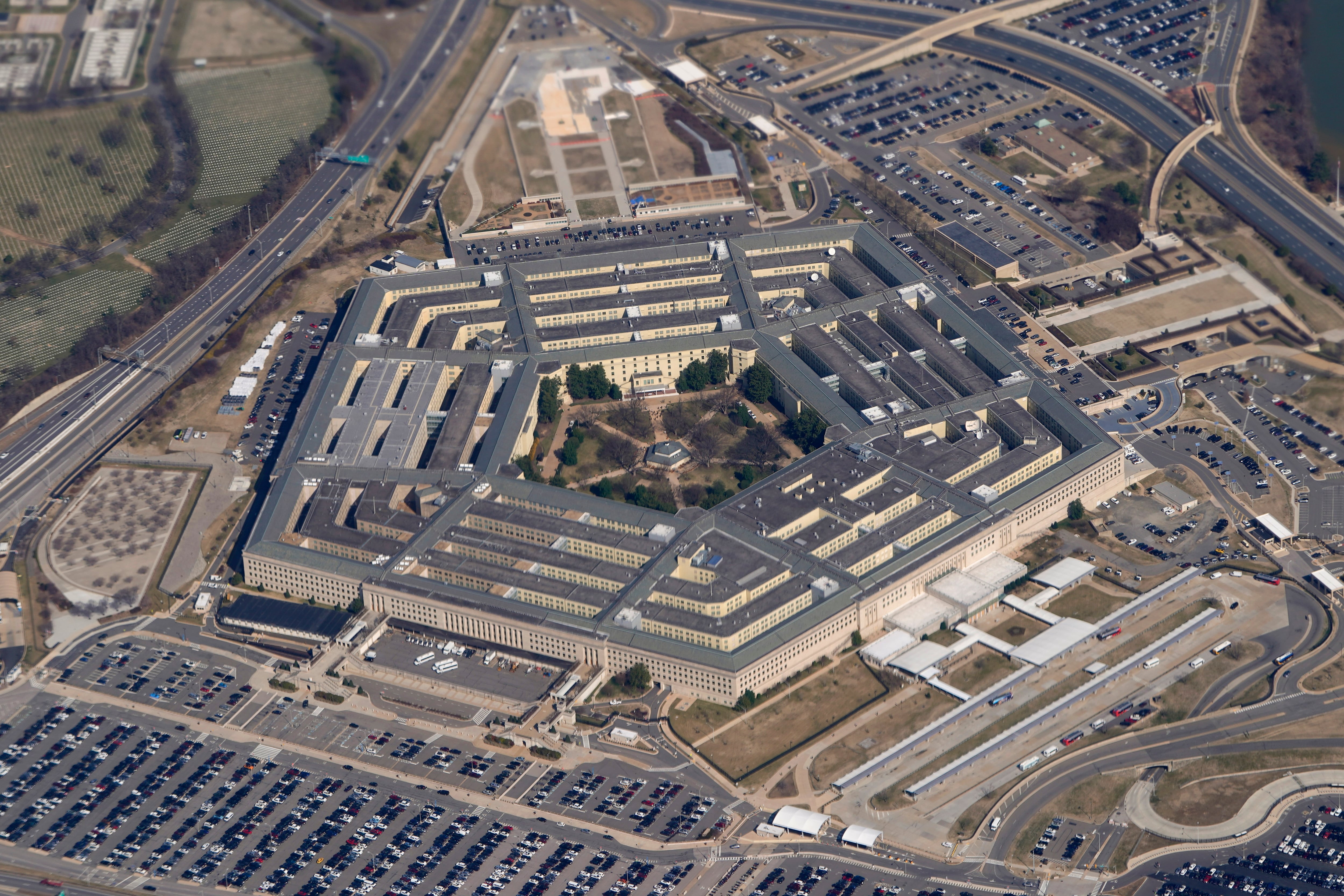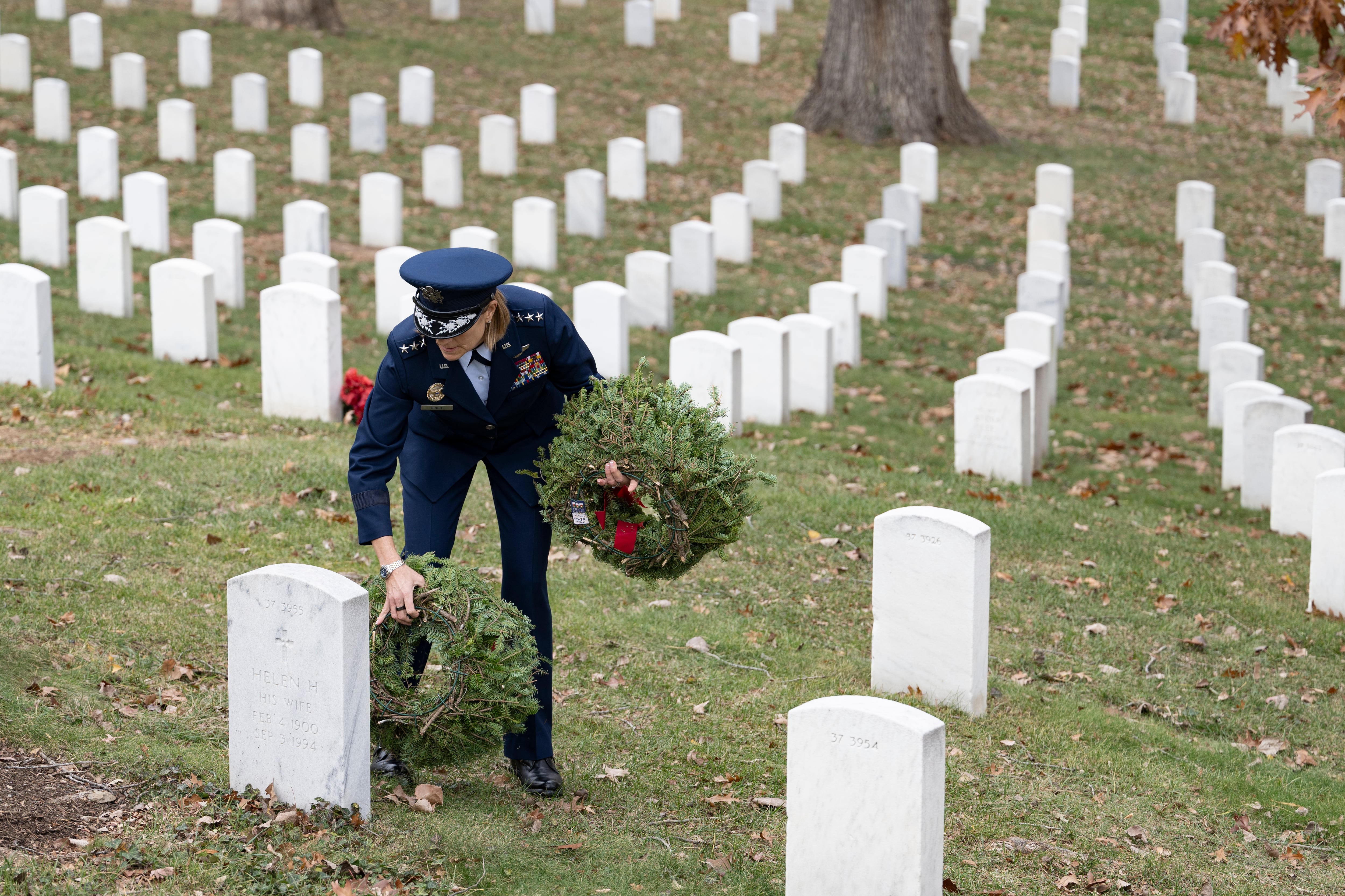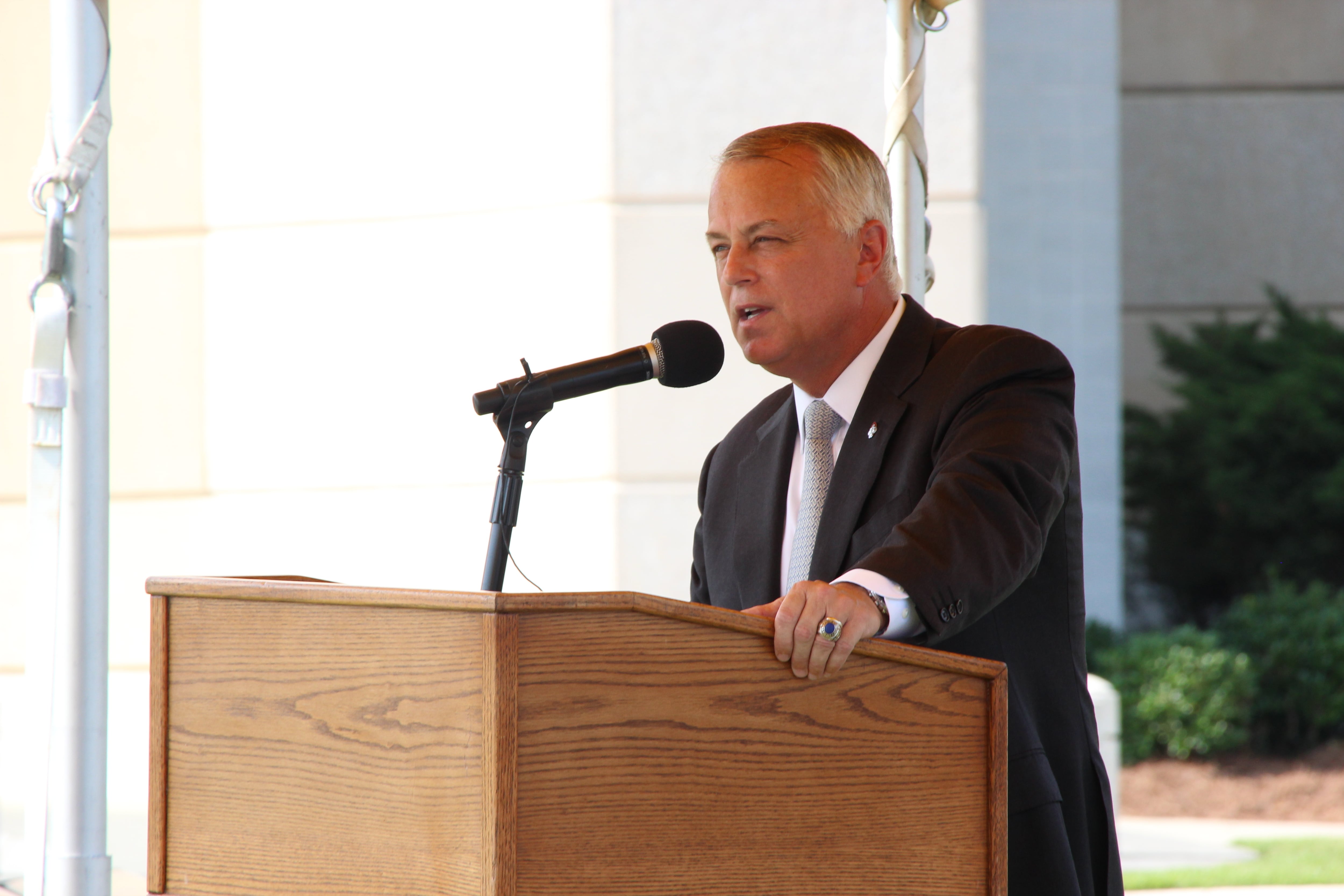FORT CARSON, Colo. — Capt. Florent "Flo" Groberg's last sprint may have been his fastest, ever.
They weren't the long gliding steps he took on long races. More like the frenetic relay scamper as the baton is passed. Fractions of time made the difference.
"It lasted eight seconds," the 32-year-old former Fort Carson soldier said of the run that led him to the Medal of Honor.
On Aug. 8, 2012, Groberg's last run propelled him toward a suicide bomber who was heading for a formation of American and Afghan leaders he was protecting as they walked through Assadabad, Afghanistan.
The Army described Groberg's last foot race: "When the individual made an abrupt turn toward the formation, Groberg rushed the suspect and shoved him away from the patrol."
Some people aren't surprised about what Groberg did with his last few running strides.
Coach Tom Martin had seen Groberg run that way on cross-country courses for Walter Johnson High School in Maryland.
Distance runners like Groberg, he said, are funny people. They must balance peace and chaos at once in their brains to run through pain and run fast enough to win. What made Flo Groberg such a special runner is that he never ran for himself.
Teammates meant more than the fiery pain that burned in his leg muscles and the needles he felt in his lungs as he pounded out mile after mile.
"When you hit that wall, you have other people depending on you to get over it," said Martin, who has coached runners since the 1990s. "Kids find out they have a lot more in them than they think."
Groberg's sprint in Assadabad drove him into history as an American hero. President Barack Obama will award Groberg the nation's highest honor for valor in a White House ceremony Thursday. The Army says those few steps saved lives and showed unrivaled courage.
His swift action to tackle a suicide bomber, though, left Groberg with a shredded left calf muscle and damaged nerves. It's unlikely he'll run again, although he can walk and has ongoing physical therapy.
Family members say the leg wound, though, didn't end the real race Groberg has been running all of his life.
"Flo, since he was a little boy, he'd get focused on something, you know a goal? And he'd have to reach it," said his mother, Klara Groberg. "And that's it. He doesn't deviate from his goal. That's the focus."
Groberg was born in 1983 in a Paris suburb, to Larr, his American father, and Klara, a French woman of Algerian heritage. He came to America in 1994 and had to learn English as a second language.
Groberg said coming to America wasn't something he thought much about. He became a citizen in 2001 and took it in stride.
"I was naturalized, but there was nothing to remember," he said. "There was no significant event."
At Walter Johnson, coach Martin spotted a fire inside Groberg. Martin said he can teach teens to run, but he can't teach them to keep running through the pain of a long race. Groberg, though, had something inside that wouldn't let him quit.
"No one had that better than Flo," Martin said.
Groberg led his high school to state meets from 1999 to 2001. He was a three-time high school MVP and spent two years as team captain.
The accolades didn't mean much to Groberg, who described himself as an "OK runner."
Coaches at the University of Maryland thought Groberg was more than OK. They recruited the runner and made him an anchor of their track team.
"Flo was viewed as a relentless worker by many of his teammates and coaches," the university said on its website. "Some of his best performances came in relay settings when he was determined to perform for his teammates."
Groberg holds the seventh spot in Maryland's record list for the distance medley relay and is No. 9 on the school's all-time list in the 3,000 meters.
After graduating from Maryland in 2006, Groberg traded in his spikes for a corporate job with a Virginia- based high-tech firm. Family members say he was doing well and making piles of money.
But the runner wanted a different challenge.
"A lot of people didn't understand why you would leave a great-paying job and go join the Army," his mother said. "But he wanted to do it for a long time. He loves his country, and he always wanted to do this."
In 2008, Groberg joined the Army and reported for Officer Candidate School.
Groberg said the introduction to his comrades in Fort Carson's 4th Brigade Combat Team was daunting.
By the time the single soldier finished his training, the unit was deployed to Afghanistan's Pech River Valley.
Groberg was sent overseas in November 2009 and assigned as a platoon leader of a 40-soldier unit loaded with combat veterans.
"I was as green as it gets," Groberg said.
The new lieutenant, though, knew he could learn to lead. His teacher was the platoon's top enlisted man, Sgt. 1st Class Korey Staley.
Groberg remembers Staley's advice.
"For the next seven days, shut up, don't say anything on the radio," Staley advised. "After seven days, you and I will sit down."
Groberg made it through that week and the seven months of combat that followed. He came out of his first deployment in June 2010 with his skills honed and his unit intact.
"We brought everybody home," he said.
Other officers noticed the ambitious lieutenant from the start. He was one of the most physically fit soldiers in the brigade. He always showed a positive attitude, and soldiers loved him. And he had studied Army tactics the way he once studied the subtleties of the track.
"He was obviously very impressive," said Fort Carson's Brig. Gen. James Mingus, who took command of the brigade in August 2010.
Mingus was responsible for getting the unit ready for a return to war. He picked Groberg for a special job — leading a security detachment to protect the unit's leaders.
Other soldiers would have jumped at the job as one that puts junior officers in line for rapid promotion.
Groberg, though, drove a hard bargain with Mingus. He wanted a chance to show he was the most fit soldier in the Army through the service's Best Ranger Competition. Mingus, who prides himself on physical fitness, caved quickly.
"I made a deal that if he came to be my personal security detachment platoon leader, I would let him compete in the Best Ranger Competition in 2013," Mingus said.
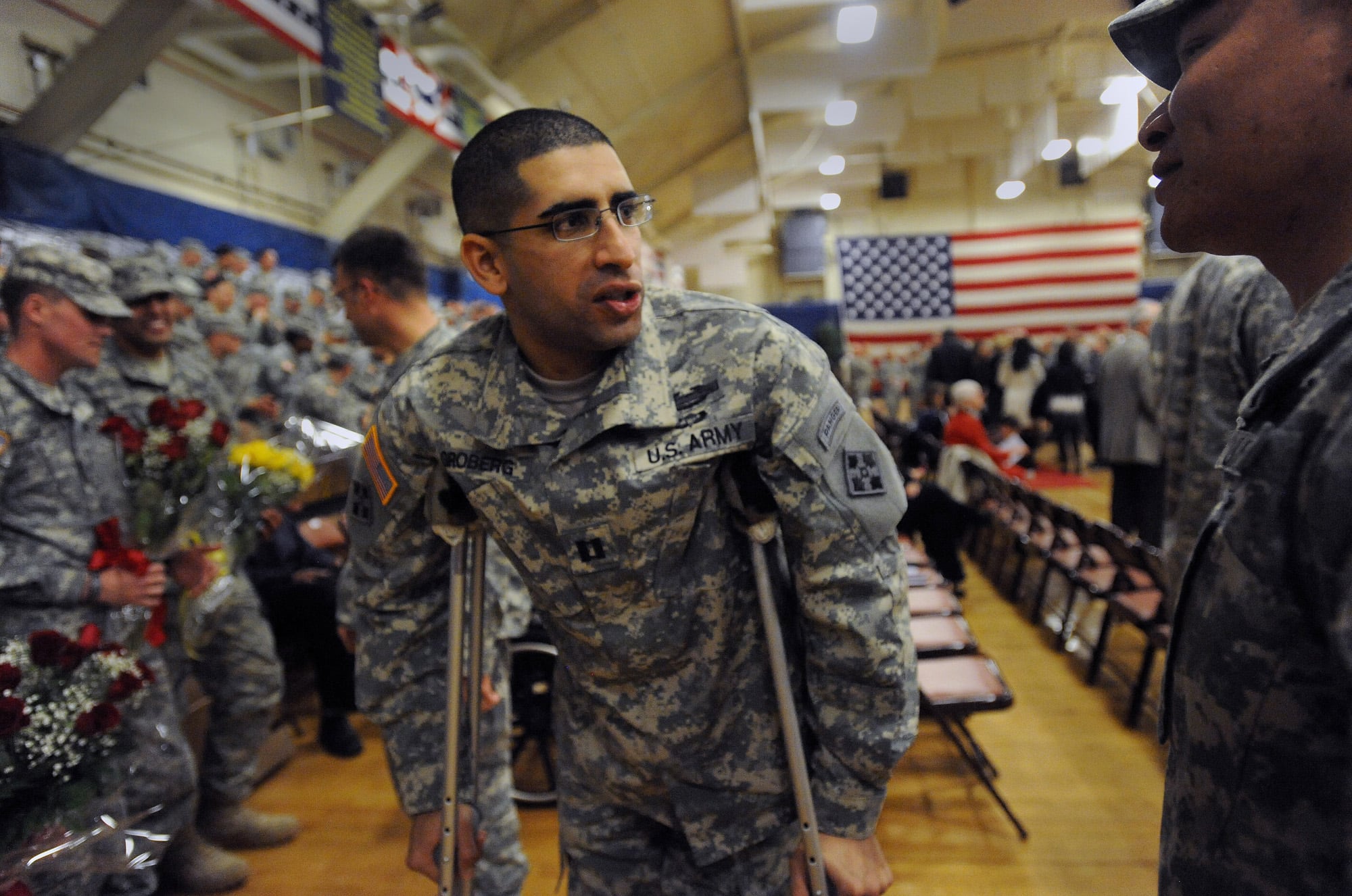
Capt. Florent Groberg returns for the Change of Command ceremony for the 4th Infantry Brigade Combat Team, on Feb. 14, 2013, at Fort Carson's Special Events Center, in Colorado.
Photo Credit: Christian Murdock/The Gazette via AP
Groberg showed dedication to the new job. And his intellect made him something more than a bodyguard. Mingus said he became a trusted second set of eyes during the brigade commander's constant travels through Afghanistan.
"Everywhere we would go, I wanted him with me," Mingus said.
On Aug. 8, 2012, Groberg led a six-member team on what seemed like a routine mission. Mingus traveled that day by helicopter from Jalalabad to the provincial capital of Assadabad for a security meeting with Afghan leaders, including the governor.
The last half-mile of the journey was on foot from an American compound to the governor's residence. Groberg's team was responsible for protecting 28 people on the walk.
About halfway through the trip, the enemy struck.
It started with a pair of motorcycles that roared toward Groberg and the dignitaries he was protecting. That was a purposeful distraction, designed to allow a pair of suicide bombers to approach, an Army report found.
Groberg spotted a bomber.
"I saw a bad guy, thought he was a threat and I wanted to eliminate the threat away from the boss," he said.
Groberg ran to grab the bomber and used his powerful legs to push him away from Mingus and the others. Sgt. Andrew Mahoney pitched in, and the pair wrestled the bomber to the ground.
"He landed on my feet," Groberg said. "He detonated."
The blast drove shrapnel into Groberg's legs and caused another suicide bomber aiming for the patrol to trigger his vest.
Four men died: Air Force Maj. Walter D. Gray, 38, of Conyers, Georgia; Army Maj. Thomas E. Kennedy, 35, of West Point, New York; Army Command Sgt. Maj. Kevin J. Griffin, 45, of Laramie, Wyoming; and State Department worker Ragaei Abdelfattah, 43, of Annapolis, Maryland.
Mingus said Groberg's run saved many more.
"He saved not just me, but a whole bunch of other folks that day," Mingus said.
Groberg was evacuated with other troops hurt in the bombings. Mahoney, who suffered arm wounds, was evacuated, too.
Mingus, who suffered a concussion, said he knew Groberg was a hero when he watched him tackle the bomber.
But before he would be honored for his heroism, Groberg would suffer through long months of recovery, including 33 surgeries to rebuild his left leg.
Walter Reed Army Medical Center would become his new home, his mother said.
Groberg never complained. He talked about getting back to his soldiers and back on the track. Back in the race.
"And that's how strong he was. And the other thing, he was upbeat," Klara Groberg said.
Groberg said his biggest regret was not going for one last long run before he was wounded.
"It made me realize I made a mistake on Aug. 7 in Jalalabad by not running," he said. "I thought, I'll do it tomorrow."
As he recovered, Groberg found a cheering section different from the one he'd had at the University of Maryland.
Wives of the soldiers who died and those who survived reached out. Text messages and cellphone talks filled the dark hours of hospitalization.
"It's good to share stories with their families," Groberg said. "It's therapeutic for them; it's therapeutic for me."
Groberg, now medically retired from the Army, said he has been forced to acknowledge wounds he can't outrun.
"I learned the lesson," he said. "You think you're going to beat it."
But the ruined leg won't slow Groberg in his new race: A marathon effort to honor the men who died in the bombing.
The families of those who died will be at the White House when Groberg gets the medal. So will Mingus. And his high school track coach.
It's the start of another race Groberg says he won't quit.
"It's about talking about my guys that I lost," he said. "Me receiving this award, it represents the four guys I lost."

